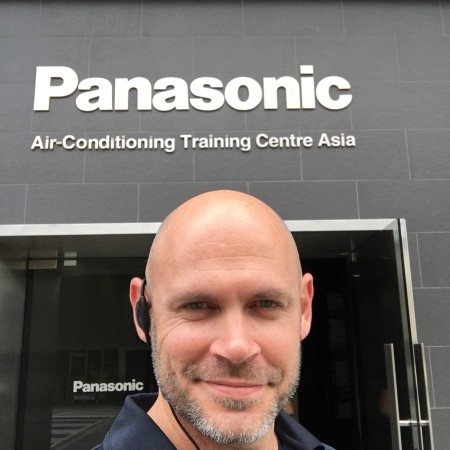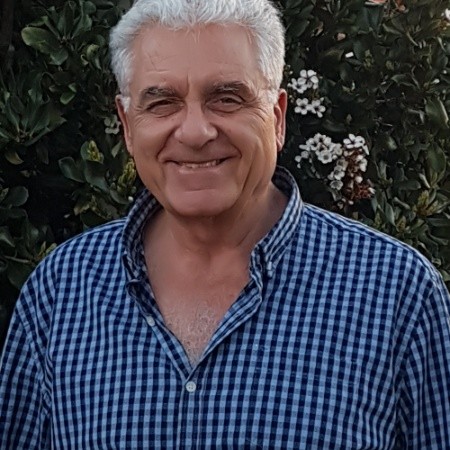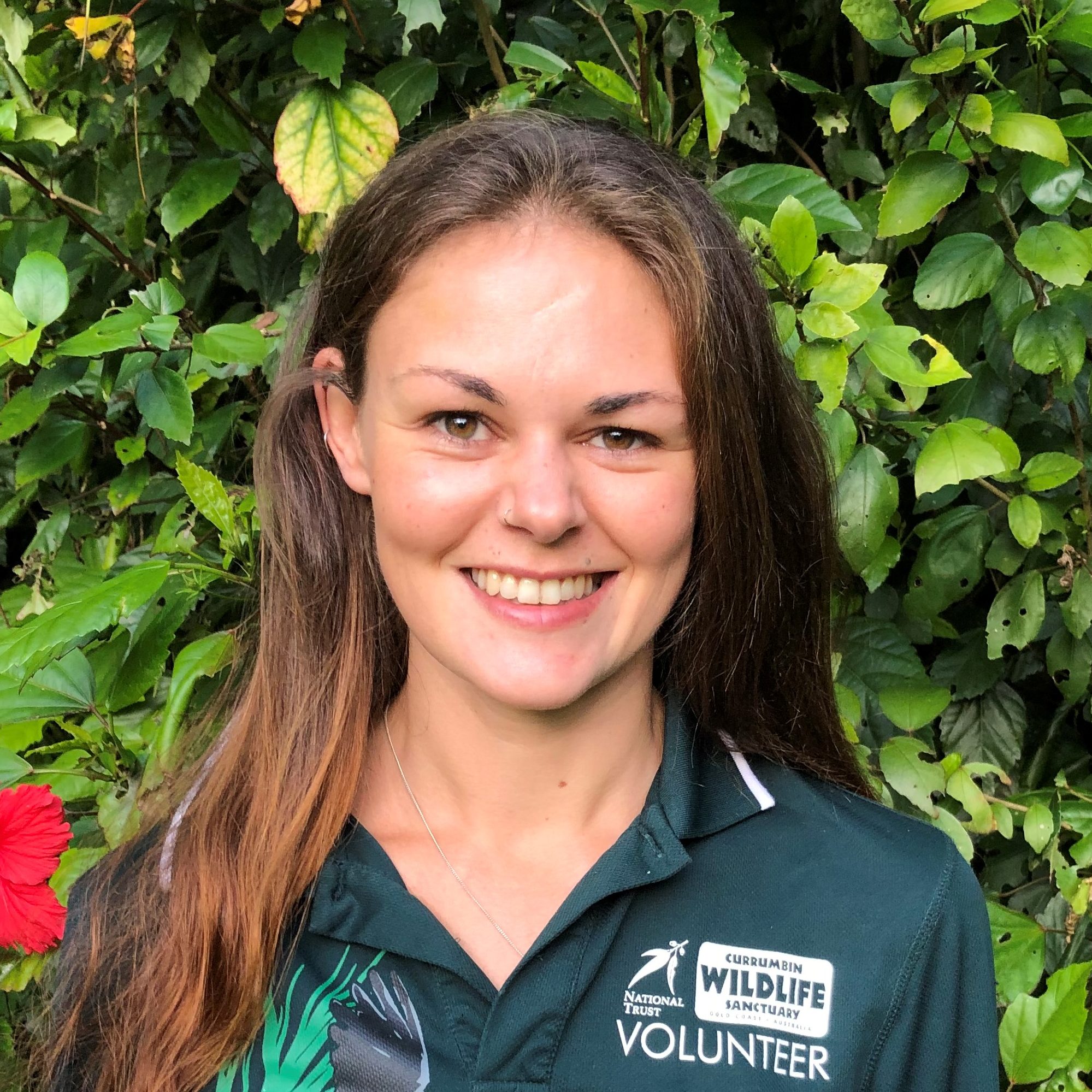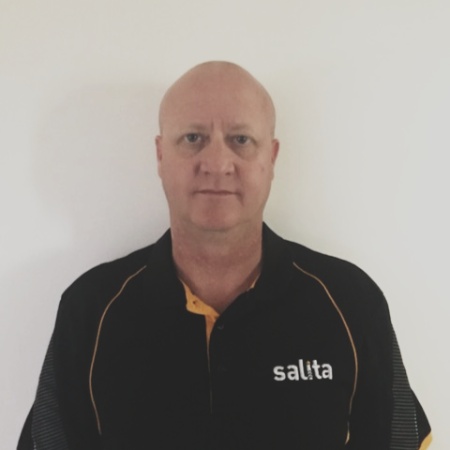Your Robotics & Mechatronics Prototyping Services for Mount Edwards Experts
COLETEK offers custom robotics prototyping and mechatronic system development — combining mechanical engineering, embedded systems, control software, and AI into working real-world robots. From autonomous vehicles to smart tools and robotic assistants, we deliver edge-to-cloud solutions tailored to your goals in Mount Edwards.
What We Build
- Autonomous ground vehicles (AGVs and UGVs)
- Robotic arms and actuators
- Custom sensors and edge AI integration
- Embedded control systems & firmware
- Real-time feedback and computer vision systems
Our Experience
Our CTO, Luke Cole, previously worked for Hemisphere GPS (originally BEELINE), implementing auto-guidance for quadbikes and tractors used globally. He also contributed to early autonomous mobile robotics and self-driving vehicles at CSIRO, NICTA, Seeing Machines, and ANU Robotics Systems Lab.
His early work on custom robotics platforms led to thousands of lines of original control and computer vision code — long before frameworks like ROS or OpenCV were mainstream. His brother, Lance Cole, contributed to high-end military robotic systems including CROWS.
With over 50 combined years of hands-on robotics experience across marine, ground, and aerial platforms — we are uniquely positioned to help develop, test, and iterate real-world robotic solutions.
Explore More
Contact COLETEK today to bring your robot to life.
Trusted Engineering and Product Development for Businesses in Mount Edwards, Queensland, Australia
Let’s build something remarkable together.
Contact UsRobotics & Mechatronics Prototyping Services for Mount Edwards – Our Clients: Big Brands & Small Businesses































































































Robotics & Mechatronics Prototyping Services for Mount Edwards – Amazing Customer Testimonials
Luke from COLETEK has assisted us on a number of occasions and has always been helpful, courteous and understanding of our needs. There was an instance when timing was of the essence and Luke was able to prioritise our job to ensure we weren't affecting our customers in a negative way. He is highly recommended.

I can say that I've only dealt once with Luke Cole at COLETEK and I found him to be very professional and helpful with his assessment of my device. His expertise and suggestions with regards to my invention was great, despite my pedestrian review of it and what I was hoping it could achieve. In the end his advice was paramount in my final decision as to whether I would move forward with the development of a prototype.

I can say that I've only dealt once with Luke Cole at COLETEK and I found him to be very professional and helpful with his assessment of my device. His expertise and suggestions with regards to my invention was great, despite my pedestrian review of it and what I was hoping it could achieve. In the end his advice was paramount in my final decision as to whether I would move forward with the development of a prototype.

I'm in the early stages of my prototype design. I have worked with Luke for a couple of years now and in that time I have found Luke to be very reliable, responsible with my design, honest and trustworthy. What stood out the most was Luke's pride and commitment that he undertakes to ensure a positive outcome. I consider it a privilege to call Luke an associate and have no hesitation in encouraging others to do the same.
I consulted COLETEK for some work, commencing in 2014, and haven’t looked back. The project was very important to me, and COLETEK not only saw that but exuded sincere enthusiasm about the project; they are attentive, and thorough in their research and development service. They are a wealth of information and advice, for many aspects of the entire engineering and commercialization space, and this has been invaluable to me. I look forward to continuing work with them long into the future!

Thank you for your recent help with my enquiry. I have been able to proceed with my project which was proving very difficult before I was fortunate enough to make your acquaintance. The help you have given me and the contacts I have made with your support has been invaluable. Thank you so much and I look forward to a long and fruitful association.
Luke and the team do a amazing job. Extremly happy from start to finish
I had a technical design and prototype job I needed done and had contacted two companies in Brisbane before I discovered COLETEK. From my first conversation with Luke, I knew that he was the best person for the job and he delivered under budget and within the required timeframe. The device he manufactured for my company will save us thousands of dollars and it is highly likely that we will on-sell the device to similar organisations. I recommend COLETEK for any design and prototype work you can imagine for your business.

We used COLETEK on a small project involving mechanical and electronic design aspects as well as software development. COLETEK understood our requirements at the outset and worked to accommodate our needs. The whole process was professionally conducted and we highly recommend COLETEK

Our dealings with COLETEK were pleasant and professional. Luke was kind and courteous and very easy to talk to. High quality design concepts were emailed through with regularity so that we always knew exactly what was going on. I would recommend supporting hard workers and local Australia business by working with COLETEK

We engaged COLETEK to conduct a series of research projects on robotics and we very pleased with their technical skill, creative thinking and hard work. If you need to prototype a complex technical idea, they are a great partner to work with.

I had a technical design and prototype job I needed done and had contacted two companies in Brisbane before I discovered COLETEK. From my first conversation with Luke, I knew that he was the best person for the job and he delivered under budget and within the required timeframe. The device he manufactured for my company will save us thousands of dollars and it is highly likely that we will on-sell the device to similar organisations. I recommend COLETEK for any design and prototype work you can imagine for your business.

We worked with Luke from COLETEK to develop a prototype for a new venture. Luke was able to give us practical advice on how to execute the project inline with our budget that was super useful. What has been endearing, is that even after the build was complete, Luke continues to touch base with us offering help to keep the momentum of the project going forward.

Luke has a very broad depth of knowledge across many engineering disciplines and has a large project base to draw experience from. I engaged COLETEK for assistance in some early electro-mechanical design for a hoisting system. They've been a great resource for helping develop ideas.
Great prototype product made to our specs with minimal fuss. Delivered on time and within budget. Thanks team.

Luke has a very broad depth of knowledge across many engineering disciplines and has a large project base to draw experience from. I engaged COLETEK for assistance in some early electro-mechanical design for a hoisting system. They've been a great resource for helping develop ideas.
Our company has been working with COLETEK and Luke Cole for several years. Luke is very intelligent in many areas and has provided us with excellent designs and service. With the addition of a marketing section to provide brochures, packaging, etc. COLETEK is a one-stop shop. Based on our experience, we would highly recommend Luke and his company.

Great prototype product made to our specs with minimal fuss. Delivered on time and within budget. Thanks team.

Luke (COLETEK) did an amazing job helping me take an idea through technical design, proof of concept and prototype development. Luke immediately understood the requirements, delivered to a budget, within the required timeframe and the whole process was extremely professional. I highly recommend for any design and prototype work you can imagine.

In the development of our new product Smart Syphon we had a tight deadline to launch the commercial version of our product and experienced some issues with our drawings. Luke and his team dealt with the issues, worked through the week-end and delivered a quality outcome on time.

I'm in the early stages of my prototype design. I have worked with Luke for a couple of years now and in that time I have found Luke to be very reliable, responsible with my design, honest and trustworthy. What stood out the most was Luke's pride and commitment that he undertakes to ensure a positive outcome. I consider it a privilege to call Luke an associate and have no hesitation in encouraging others to do the same.
Salita engaged Luke Cole to troubleshoot issues we were having with a drive motor system with a dynamic variance of torque and speed. After approaching no less than a dozen Australian supplier and engineering firms to provide a solution, and after 12 months of product design and testing, they could not verify why their recommended motors where failing and reversing suddenly. Luke undertook testing and analysis and quickly supplied information on the failures. Not only did Luke uncover a rare, uncommon failure but also provided a solution. The COLETEK team are our go to for the correct solution the first time, for all our electronic needs.

I have had the pleasure of working with Luke, our exceptional robotic product developer, over the past few years. Luke's expertise and professionalism have been pivotal in advancing our projects. Their innovative approach, attention to detail, and commitment to excellence have consistently exceeded our expectations. The quality of work and dedication Luke brings to each level of our project has significantly contributed to our success. I highly recommend COLETEK for their outstanding skills and unwavering professionalism.

I engaged COLETEK several years ago to produce designs and working prototypes of 2 products I am currently developing as I was having difficulty obtaining what I required from overseas design companies. I have always found Luke easy to work with and having face to face meetings made explaining my concepts so much easier than endless emails. Design changes and modifications are always produced in a timely fashion and available for pickup locally.
Thank you for your recent help with my enquiry. I have been able to proceed with my project which was proving very difficult before I was fortunate enough to make your acquaintance. The help you have given me and the contacts I have made with your support has been invaluable. Thank you so much and I look forward to a long and fruitful association.
I engaged COLETEK several years ago to produce designs and working prototypes of 2 products I am currently developing as I was having difficulty obtaining what I required from overseas design companies. I have always found Luke easy to work with and having face to face meetings made explaining my concepts so much easier than endless emails. Design changes and modifications are always produced in a timely fashion and available for pickup locally.
We worked with Luke from COLETEK to develop a prototype for a new venture. Luke was able to give us practical advice on how to execute the project inline with our budget that was super useful. What has been endearing, is that even after the build was complete, Luke continues to touch base with us offering help to keep the momentum of the project going forward.

We met with Luke Cole from COLETEK and very quickly realised that he was very knowledgeable in robotics and prototyping. What separates his company from the rest, is that he had a unique value proposition - COLETEK offers a tele-operated / robotic unit for rent and with the flexibility to be modified to build proof-of-concepts. That unit lowered both the cost and time for us to produce a video showing a very challenging concept. In general COLETEK's service was great value. We would recommend them - they will get it done.

I consulted COLETEK for some work, commencing in 2014, and haven’t looked back. The project was very important to me, and COLETEK not only saw that but exuded sincere enthusiasm about the project; they are attentive, and thorough in their research and development service. They are a wealth of information and advice, for many aspects of the entire engineering and commercialization space, and this has been invaluable to me. I look forward to continuing work with them long into the future!

I have had the pleasure of working with Luke, our exceptional robotic product developer, over the past few years. Luke's expertise and professionalism have been pivotal in advancing our projects. Their innovative approach, attention to detail, and commitment to excellence have consistently exceeded our expectations. The quality of work and dedication Luke brings to each level of our project has significantly contributed to our success. I highly recommend COLETEK for their outstanding skills and unwavering professionalism.

Luke and the team do a amazing job. Extremly happy from start to finish
Salita engaged Luke Cole to troubleshoot issues we were having with a drive motor system with a dynamic variance of torque and speed. After approaching no less than a dozen Australian supplier and engineering firms to provide a solution, and after 12 months of product design and testing, they could not verify why their recommended motors where failing and reversing suddenly. Luke undertook testing and analysis and quickly supplied information on the failures. Not only did Luke uncover a rare, uncommon failure but also provided a solution. The COLETEK team are our go to for the correct solution the first time, for all our electronic needs.

We met with Luke Cole from COLETEK and very quickly realised that he was very knowledgeable in robotics and prototyping. What separates his company from the rest, is that he had a unique value proposition - COLETEK offers a tele-operated / robotic unit for rent and with the flexibility to be modified to build proof-of-concepts. That unit lowered both the cost and time for us to produce a video showing a very challenging concept. In general COLETEK's service was great value. We would recommend them - they will get it done.

Our dealings with COLETEK were pleasant and professional. Luke was kind and courteous and very easy to talk to. High quality design concepts were emailed through with regularity so that we always knew exactly what was going on. I would recommend supporting hard workers and local Australia business by working with COLETEK

In the development of our new product Smart Syphon we had a tight deadline to launch the commercial version of our product and experienced some issues with our drawings. Luke and his team dealt with the issues, worked through the week-end and delivered a quality outcome on time.

I would thoroughly recommend COLETEK they provided me with excellent feedback and engineering knowledge with regards to our idea. They also have continued to help us with what direction we should take and introduced us to other professionals that have also guided us. I suggest anyone who has been thinking of something they would like to pursue should contact them to get the most realistic approach of making it successful.
Our company has been working with COLETEK and Luke Cole for several years. Luke is very intelligent in many areas and has provided us with excellent designs and service. With the addition of a marketing section to provide brochures, packaging, etc. COLETEK is a one-stop shop. Based on our experience, we would highly recommend Luke and his company.

We used COLETEK on a small project involving mechanical and electronic design aspects as well as software development. COLETEK understood our requirements at the outset and worked to accommodate our needs. The whole process was professionally conducted and we highly recommend COLETEK

I would thoroughly recommend COLETEK they provided me with excellent feedback and engineering knowledge with regards to our idea. They also have continued to help us with what direction we should take and introduced us to other professionals that have also guided us. I suggest anyone who has been thinking of something they would like to pursue should contact them to get the most realistic approach of making it successful.
We engaged COLETEK to conduct a series of research projects on robotics and we very pleased with their technical skill, creative thinking and hard work. If you need to prototype a complex technical idea, they are a great partner to work with.

Luke from COLETEK has assisted us on a number of occasions and has always been helpful, courteous and understanding of our needs. There was an instance when timing was of the essence and Luke was able to prioritise our job to ensure we weren't affecting our customers in a negative way. He is highly recommended.

From an idea in my head to making sales nationwide and now worldwide. COLETEK were there every step of the way. The product was my first development so I had no idea really. With COLETEK offering privacy agreements and steering me in the right direction, it gave me confidence instantly. One thing that may seem irrelevant they questioned me about what it was I was trying to achieve and if in fact if it's even viable? That for me showed COLETEK wasn't in it just for my money. After some meetings and a couple of CAD drawings we had our first working prototype. COLETEK's knowledge and experience definitely made this whole process a lot easier. From CAD drawings, prototypes, liaising with suppliers in Australia and overseas - COLETEK done the lot. I'd highly recommend COLETEK!
From an idea in my head to making sales nationwide and now worldwide. COLETEK were there every step of the way. The product was my first development so I had no idea really. With COLETEK offering privacy agreements and steering me in the right direction, it gave me confidence instantly. One thing that may seem irrelevant they questioned me about what it was I was trying to achieve and if in fact if it's even viable? That for me showed COLETEK wasn't in it just for my money. After some meetings and a couple of CAD drawings we had our first working prototype. COLETEK's knowledge and experience definitely made this whole process a lot easier. From CAD drawings, prototypes, liaising with suppliers in Australia and overseas - COLETEK done the lot. I'd highly recommend COLETEK!

